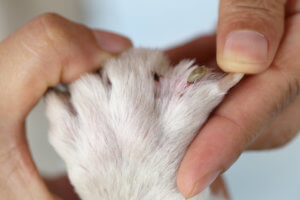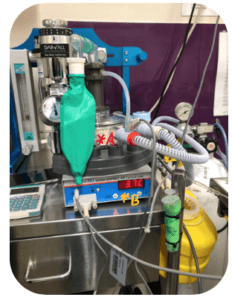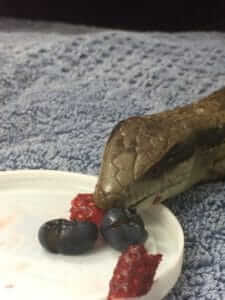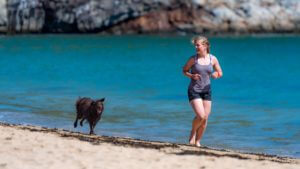Tick Season
We had our first paralysis tick patient last week. A little poodle had just returned from a trip to the bush when his owner noticed a paralysis tick on his ear!

Ticks aren’t always immediately visibly, they can be in hidden places such as in between your pet’s toes.
His owner was vigilant and kept up to date with his flea and worming treatment however not all flea products protect against ticks. Luckily his mum did the right thing and brought him to us straight away with the tick she managed to pull off for identification.
We have also had a couple of clients report to us that they have seen ticks around their yards! Warmer weather is definitely tick season and if you plan on going to any bush area with your four-legged friend it is important to confirm that the parasite protection you are using includes ticks.
Cats are also susceptible to ticks so be cautious if your feline goes outdoors or in particular has access to overgrown, leafy areas.
We stock a couple of products that protect cats and dogs against ticks so if you have any doubts feel free to drop by our clinic or call us for a chat.
If you would like more information on ticks, what symptoms to look out for in particular and what to do you can read on here






